After watching Children of Men as a 16-year-old, I cried in my room for three days. While that may not exactly be your typical glowing review, the 2006 dystopian thriller both touched and unnerved me deeply.
Director Alfonso Cuarón’s cinematography is breathtaking and heart-rending as he depicts society grappling for its survival — and its humanity.
Children of Men’s Dystopian World Is Too Close for Comfort
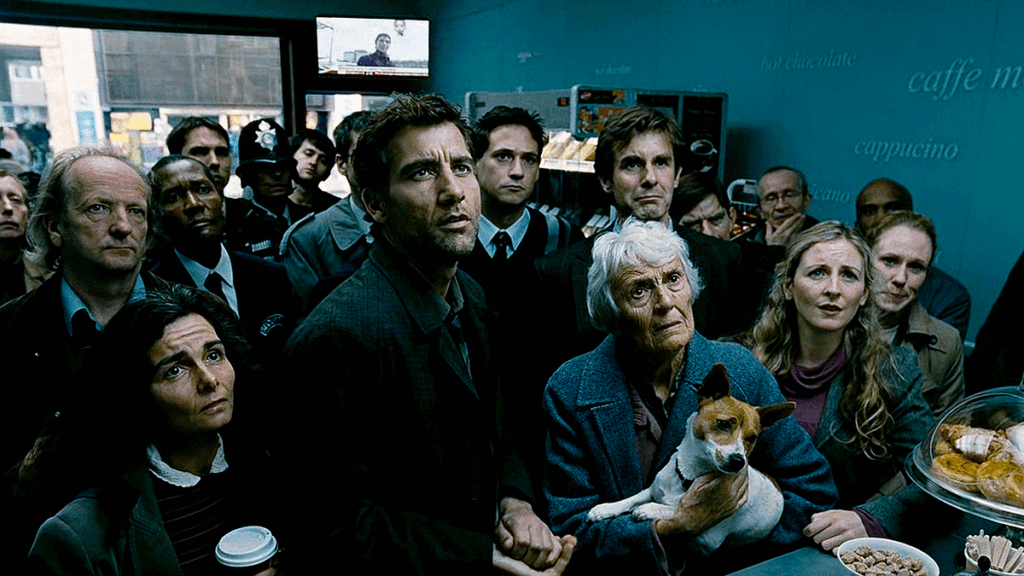
Based on the 1992 novel by P.D. James, Children of Men is set in a very near future (2027!), when humanity has become infertile. The film opens with the protagonist, former activist Theo Faron (Clive Owen), in a crowded coffee shop. News flashes across the television that the world’s youngest person — its symbol of hope — has died at 18 years old.
RELATED: 120 Hope Quotes That Will Get You Through Any Tough Times
Set in a crumbling United Kingdom, Children of Men touches upon social and political themes that were already dominating headlines. The film amplifies their relevance by projecting them into an imagined future, where they can play out to logical extremes.
With threats of environmental degradation, fossil fuel wars, terrorism, and animosity toward immigrants and minorities, the film felt like anything but fiction.
It was like seeing the future. As a thoughtful and sensitive teenager, I felt so little hope about the world I was inheriting. And yet …
Children of Men Illustrates Another Definition for Hope
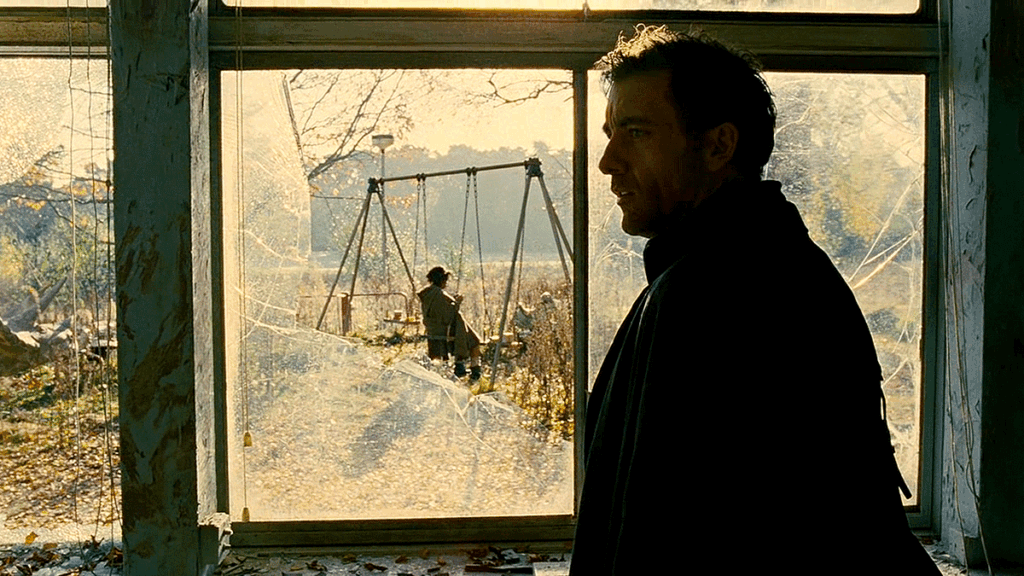
In her book, Hope in the Dark, Rebecca Solnit characterizes hope as “giving one’s self to the future, thus making the present inhabitable.” Against the backdrop of a film like Children of Men, that definition becomes more than an aphorism. It’s a strategy for survival.
The movie’s imagined future is nearly uninhabitable, to the extent that there are for a suicide drug called Quietus.
For many — both in Cuarón’s fictional world and in the real one — it’s easier to slip into despair. Even Owen’s protagonist, Theo, has given up activism following the death of his son, opting instead for a newfound “realism” involving resigned acceptance of the state of affairs.
Theo is betrayed, however, by his constant chain smoking, and the whiskey shots he pours discreetly into his coffee. As much as he may rationalize his outlook, he’s clearly affected.
RELATED: 5 Ways to Turn Your Pessimism Around by Being More Realistic
Solnit writes that hope is “a darkness as much of the womb as of the grave.” Hope is a balancing act between symbolic birth and death, the perfect metaphor for a movie about a world where birth has become virtually impossible.
The Link Between Hope and Nihilism
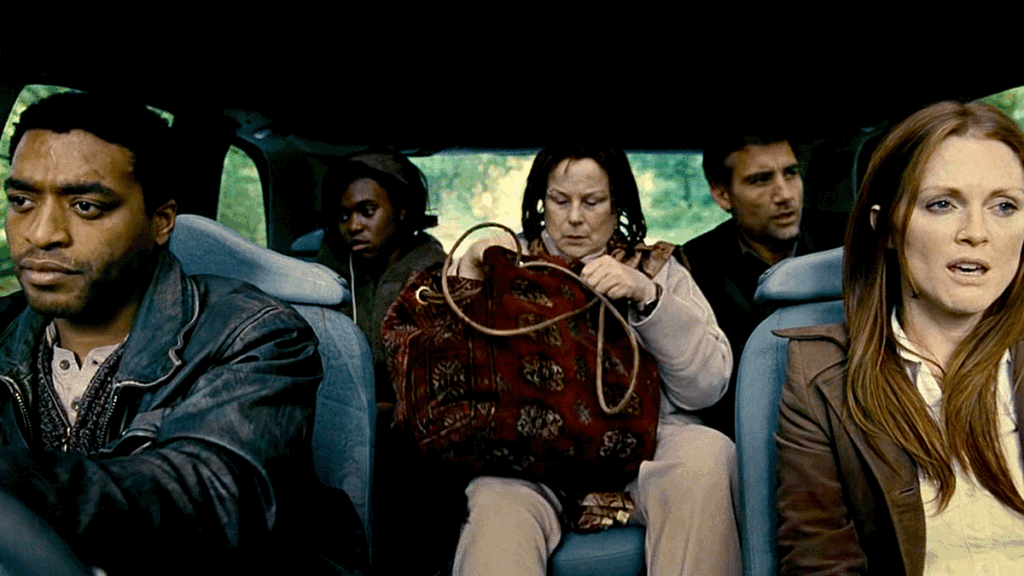
But after Theo is kidnapped by his former lover, he’s tasked with securing transit papers for a young refugee named Kee (Clare-Hope Ashitey), who’s revealed to be pregnant with the first baby conceived in 18 years.
Theo and his young charge are, very literally, balancing between birth and death, as the gift of life also makes Kee a prime target for those who might want to use the baby for their own ends. Death and birth turn out to be tightly interwoven, perhaps even indistinguishable.
RELATED: Netflix’s 5 Most Uplifting and Inspirational Movies to Watch Right Now
Solnit’s description of the dual nature of hope is very much like Nietzschean nihilism, a response to the inevitable contradiction of what the German philosopher called the “Christian-Moral” worldview of his day.
That worldview involved the belief each person is a member of God’s flock, and God is the divine shepherd. That perspective created an order to to existence, giving humanity a role, a place and a protector. It also provided comfort, through “God’s plan,” whenever inexplicable or unjust events occurred.
However, for Nietzsche, this was a cosmic fantasy at best, because the prevailing rationalism and scientific spirit of the time made it impossible to support.
REPORT: What Shrek and Leonard Cohen’s “Hallelujah” Teach Us About Rejection and Perseverance
“This antagonism,” Nietzsche wrote in his 1901 manuscript The Will to Power, “not to esteem what we know, and not to be allowed any longer to esteem the lies we should like to tell ourselves — results in a process of dissolution.”
This dissolution is what we see happening in full force in Children of Men. Society is dissolving, with no hope left to cling to — especially now that the youngest person on Earth has died. There is no one to guide the lost flock amid the chaos, until Theo himself unwillingly becomes the shepherd.
Children of Men’s Hero Finds a New Purpose
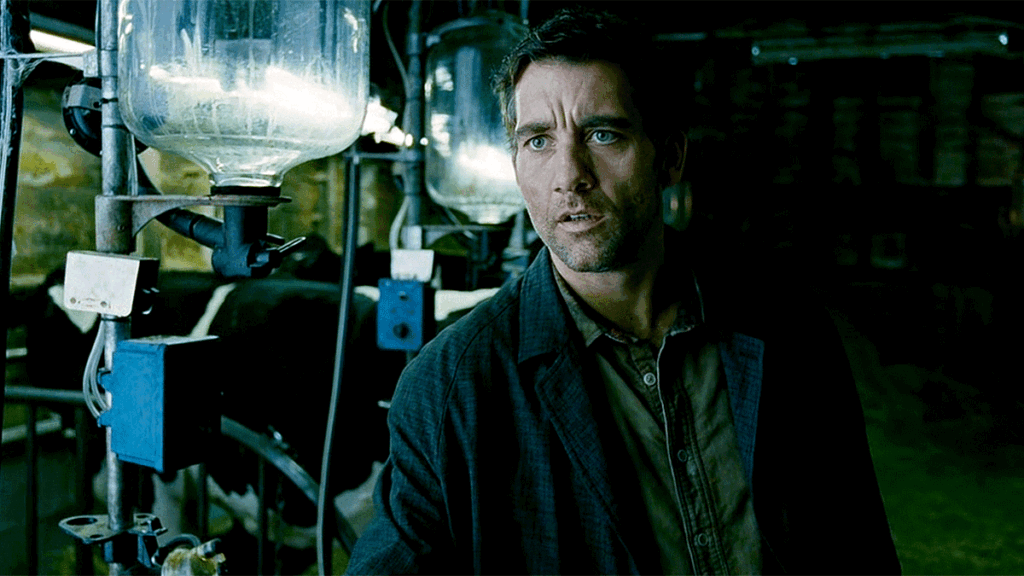
That Theo has given up his activism, his sense of purpose — even, perhaps, his dignity — actually makes him perfect for the role. He no longer has his own agenda. Thus, he can act without muddying the mission with his own whims, values or objectives.
For Nietzsche, Theo’s former purposelessness is existential paralysis, a mourning period for what once was — his son, his beliefs, and the hope for a better world. Had he not met Kee, Theo might have stayed that way forever. And yet, if he hadn’t been this way, he wouldn’t have been the perfect candidate to deliver Kee to safety.
Having emptied himself of hope, Theo is primed to be filled with something else. He can give himself wholly to a new purpose when it’s thrust upon him, because nothing else is standing in the way. That new purpose transcends the ego completely: Theo becomes an agent for something larger than himself.
Losing Hope and Finding Freedom
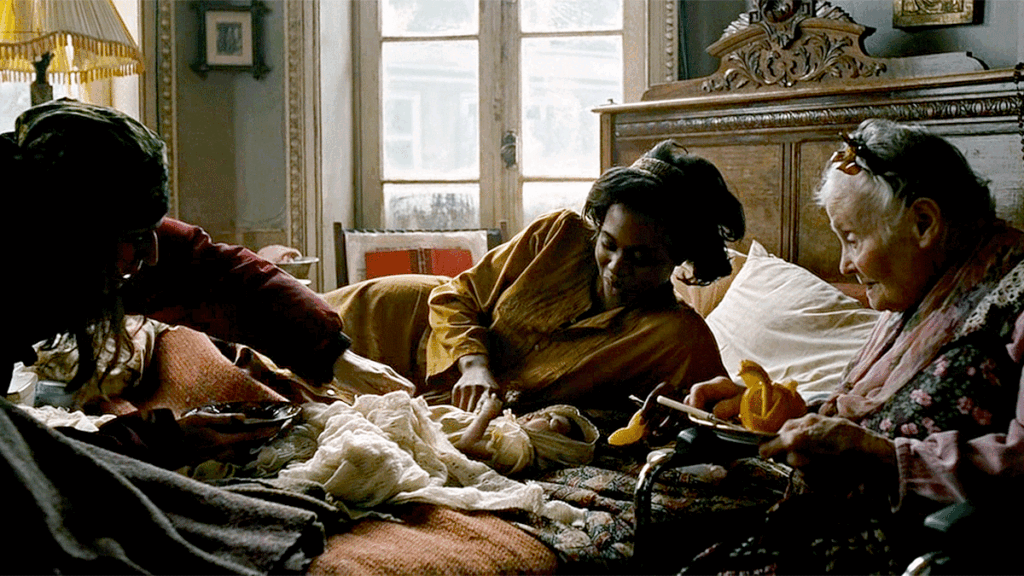
While Theo’s mission is to, very literally, save humanity from extinction, it represents a deeper existential transformation.
Anyone who has had to let go of their old way of seeing, believing and being can likely relate to Theo’s initial nihilism. If everything you once believed in, or cared about, is no longer true, how can you find purpose in anything?
RELATED: What Wes Anderson’s The Royal Tenenbaums Taught Us About Finding Humor in Trauma & Dysfunction
This stage in the existential mourning process can be a path into despair and paralysis (the grave), or it can be the birthplace of a new, more expansive, purpose (the womb). It’s the precipice between despair and resignation, and between true agency and freedom. When there’s nothing left to lose, there’s nothing to hold you back. This is existential freedom.
Nihilism offers a paradox in that it presents an invitation to go beyond it. It offers the fertile ground for new possibility. By completely letting go of hope and free-falling into nihilism, the attachment to any single outcome is severed. Thus, all things are possible.
The Lesson of Children of Men
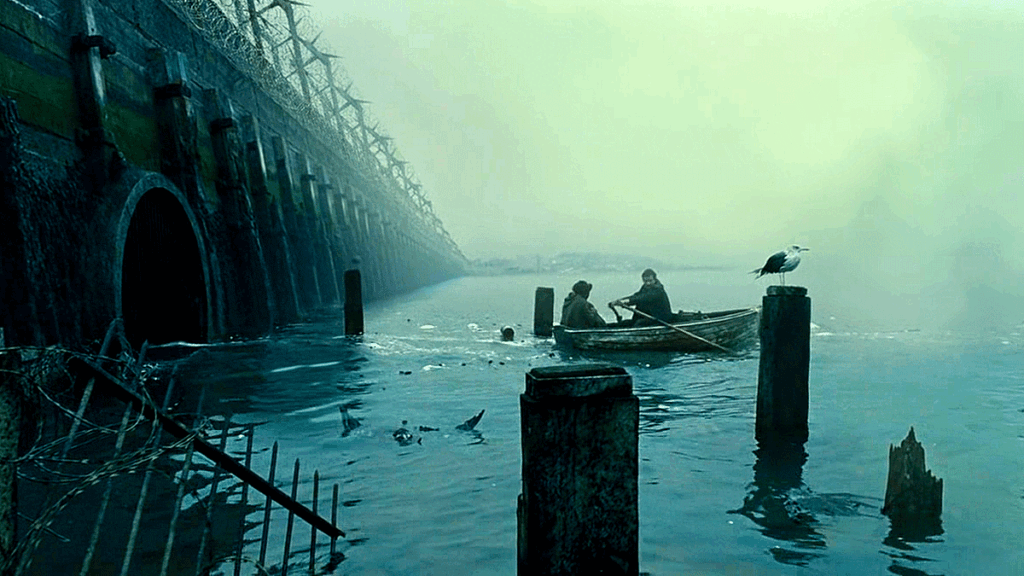
This perspective on hope and nihilism ultimately illustrates that hope can only take us so far. Certainly, it can help us get through difficult times, but only by allowing us to escape from them. This dissociation is the opposite of freedom. It’s an existential trap that has us constantly wishing we were somewhere else.
RELATED: 20 Sad Movies on Netflix That Will Make You Appreciate What You Have
The doorway from hope to nihilism eventually leads to complete acceptance of what is, without the need to push it away or cling to it. This acceptance is the true meaning of presence: The surrender of all agenda to face each moment, head-on, without wishing to escape, alter or manipulate life as it unfolds in front of us.
This is the existential freedom Theo experiences when he becomes Kee’s deliverer. He responds to what’s needed, without thought of his own desires.
Theo surrenders so completely that, in the end, he gives his life for his mission. He reveals his fatal wound to Kee in the rowboat they share moments before she’s rescued in the final scene.
The true meaning of existential freedom is freedom from the agenda of the small self. It engenders a complete surrender to the present moment that doesn’t require some heroic mission to save humanity.
Instead, it’s available to all of us when we give ourselves wholly to the present moment — whatever it might be.
KEEP READING: The 20 Most Inspiring Movies of the 2010s
Credit: Source link



